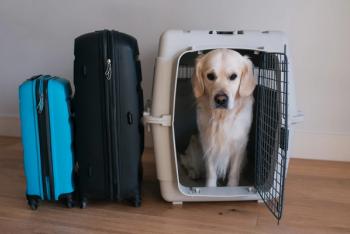
S.C. animal welfare bill widens gap between shelters, veterinary groups
Shelters say income-based restrictions would cripple them, but veterinary groups remain firm on standards of care.
It's a battle that's been played out many times-traditional private-practice veterinary medicine in one corner, nonprofit subsidized shelter medicine in the other.
Many veterinarians argue that animal shelters are useful when it comes to controlling overpopulation, offering vaccinations and taking in unwanted pets. But, they continue, services beyond those core areas should be left to traditional veterinary practices.
The result-as seen in the ongoing battle over an animal welfare bill in South Carolina that would restrict access to shelter services based on income-is a divided community that's ostensibly working for the same good.
“There is sentiment among a lot of local ‘brick-and-mortar' veterinarians who do not enjoy those same protections and privileges [as shelters] that the playing field is not exactly equal,” says Sen. Thomas McElveen, one of the bill's co-sponsors. “At the end of the day, I do not believe that shelters would have the capability to provide full-service veterinary care to everyone who desires it. On the flip side, there are many who need veterinary care for their animals but cannot afford to seek it from a private for-profit clinic. As legislators, some of us have found ourselves playing referee between two factions who both do a lot of good and serve important needs in our respective communities. We hope to ultimately end up with legislation that is fair, that keeps all entities providing veterinary services healthy, and that, most importantly, best serves pet owners and their animals.”
A similar fight in Idaho
Often the dialogue between shelters and private practices turns to standards of care, and South Carolina is no exception. “There's no doubt we need shelters and support them, but they've got to provide adequate care,” says Patricia Hill, DVM, a practitioner in Simpsonville, South Carolina, and former president of the South Carolina Association of Veterinarians. She says shelters are not equipped to handle sick pets, and taking on routine care for clients who can afford to visit a traditional clinic means the shelters have less time and resources for what they do best-taking care of unwanted pets.
Limiting ability
On the other hand, advocates of shelter medicine say the bill would paralyze shelters' ability to make ends meet. “By limiting our ability to give service, we would negatively impact our ability to prevent disease transmission and watch out for pet health,” says Wayne Brennessel, executive director of the Humane Society of South Carolina.
Barbara Nelson, president and CEO of the SPCA Albrecht Center for Animal Welfare in Aiken, South Carolina, agrees, adding that shelters are not subsidized enough to provide the care they're expected to without additional income from other services.
Few clients try to cheat the system and visit shelters just to save money, Nelson says. Often pet owners who wouldn't qualify as low-income under the proposed bill are unable to afford traditional practice services for other reasons-a disabled family member, children in college or poor financial management, for example. Her goal is to avoid seeing pets suffer as a result.
“They're humiliated sitting in front of me while the poor animal is suffering,” says Nelson, who discusses clients' ability to pay on a case-by-case basis rather than employing a standardized means test. “Somehow I make it happen.”
Everyone in competition
Although Nelson's organization does receive tax breaks and donations, they cover just 20 percent of the cost of operation-so her “higher-income” clients help subsidize that care by paying for full-cost services, she says. The shelter also operates a thrift store for additional income.
“In order to take care of that deduction for [a needy client], I do need some of these other clients to help subsidize and create revenue,” she says. “Are we in competition? Sure, everyone is in some sort of competition with someone else. If this bill passes, who's to say the consignment store down the street isn't going to complain about the SPCA running a thrift store?”
Hill says she hopes limiting services by income will increase the availability of shelter medicine for truly needy clients. “Would you give your money to a shelter so your well-to-do neighbor could get a cheap dental?” Hill asks. “I wouldn't. I want to give my money to those who really need it.”
Hill says the director of a local humane society helped her craft the bill from that shelter's business model. And those shelters that find themselves unable to operate without offering additional services have other options, she says.
“If they would like to run a full-service clinic, then they need to do it as unrelated business income and run a regular clinic so they can supplement their shelter with that money,” Hill says. “You can't have your cake and eat it too.”
Arriving at the right balance
Brennessel claims that if shelters are forced to turn some pet owners away because of the bill, those clients won't necessarily turn to traditional practices-which could compound the problem of unwanted pets.
“The people who are coming to us have never been to a vet before-they couldn't afford a vet-and if not for us they would probably never go,” Brennessel says. “We just want to be able to work within the community. We want the vets to understand what we're doing and be a resource to them and the community, and have the vets be a resource to us.”
But Hill says that while most shelters do a wonderful job, some don't-and the legislation is directed at those that don't. Restricting services based on income is only one aspect of the bill, she explains.
In the 1990s, management of South Carolina's animal shelters was removed from state supervision. While veterinarians who practice at animal shelters work under the state veterinary practice act, the state board no longer has any authority over the shelters themselves, Hill says.
As a result, animals have been treated by laypersons, clients have received unlabeled medications to take home, and other infractions of good medical principles have occurred. Hill says these and numerous other stories came out over the course of seven statewide hearings on the bill, at which more than 400 people testified. “When you open it to dialogue, you start to find many aspects of a problem,” Hill says.
So the bill also provides ways to penalize shelters that practice veterinary medicine without a licensed veterinarian, require them to label prescription medications, make them report to the Department of Labor, Licensing and Regulation, and require them to keep better records on the patients they see.
McElveen says the legislative process on this bill is not over, and things could still change once the bill goes before the full Senate in 2016.
“Shelters and shelter veterinarians play important roles with regard to veterinary care in South Carolina, as do veterinarians who maintain private practices,” McElveen says. “Most of us are seeking to arrive at the right balance, or an outcome that will work for everyone. The bill has been amended several times during the subcommittee and full committee process, and I expect that it may very well be amended further as it moves along the legislative track and as we continue to work with the stakeholders.
Rachael Zimlich is a freelance writer in Cleveland and a former reporter for dvm360 magazine.
Newsletter
From exam room tips to practice management insights, get trusted veterinary news delivered straight to your inbox—subscribe to dvm360.






